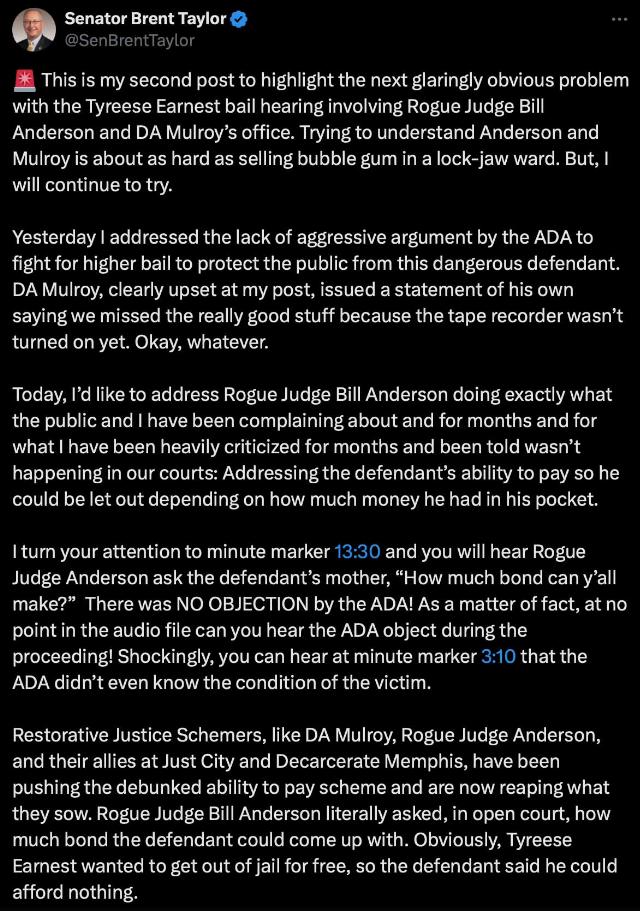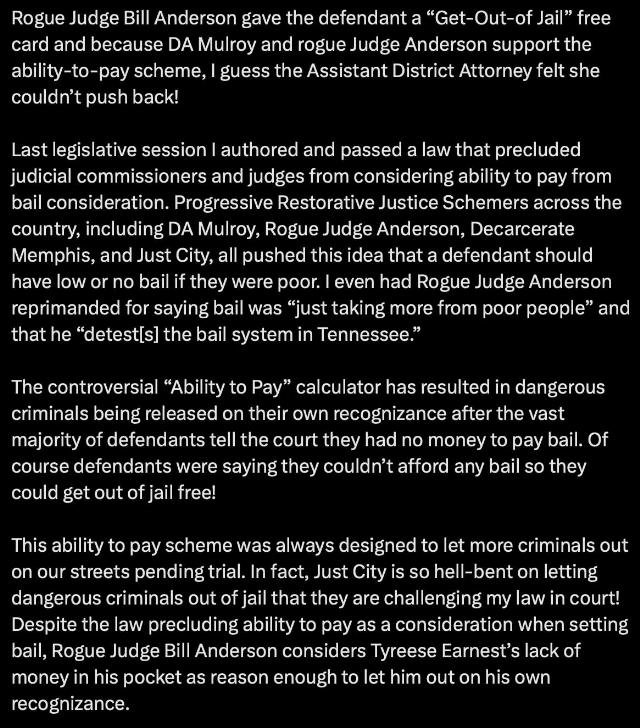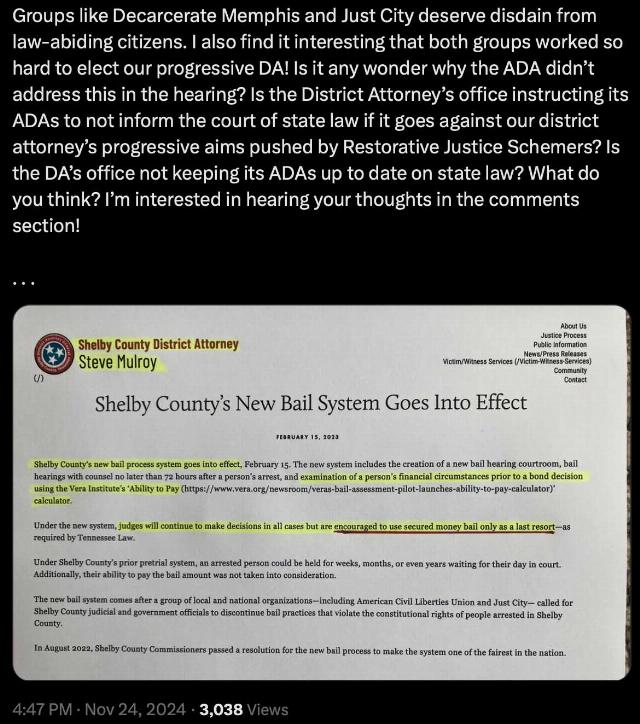In Tennessee, restorative justice breaks real justice
I’m glad I left police work behind decades ago. Not because I didn’t enjoy the work or think it noble and vital, but because of the fallout of the “defund the police” insanity and its offspring: no bail, even for violent criminals. The job has always been difficult and dangerous, but back in the old days, we at least had a reasonable belief we were holding back the criminal tide, helping to make society safe for the decent, hard-working people who paid our salaries. We were the sheepdogs keeping the wolves at bay.
Now, there are fewer willing to accept that dangerous duty, so few that blue cities and states are lowering police hiring standards just to put bodies in blue suits. That’s unwise but necessary, because rational, qualified Americans aren’t willing to put themselves on the line without the political backing and benefit of the doubt they need. Why arrest violent crooks if soft-headed, even malicious, politicians, prosecutors and judges will release them before the ink on an officer’s paperwork is dry?
That’s just what’s happening across the country, even in places one might not suspect, including Tennessee, where a thug who tried to kill a co-worker was freed on his own recognizance:

Graphic: X Screenshot
A man accused in a Memphis, Tennessee, shooting on October 30 was released without bail, causing outrage among officials.
The suspect, identified as 18-year-old Tyreese Earnest, is accused of hunting down a FedEx employee outside a distribution center and shooting him, the New York Post reported on Sunday.
Unsurprisingly, there were co-conspirators, and they were briefly in jail:
“The details of the alleged crime, the fact that the victim was ambushed, and the violent nature of it convinces us that this suspect is a threat to public safety,” Steve Mulroy, district attorney for Shelby County, said in a statement.
Meanwhile, Earnest’s accused conspirators, twin brothers Ja’Marcus Odell and Ja’Marion Odell, are still in jail with $80,000 bonds, according to WREG.
Those bonds didn’t last long. Judge Bill Anderson released them on their own recognizance.
Mulroy sounds like a reasonable, hard on crooks, prosecutor, but State Senator Brent Taylor argues his stance is only rhetorical:

Graphic: X Screenshot
What’s “restorative justice?” It’s the idea that because of past discrimination, we must coddle contemporary criminals, amounting to little more than “dialogue” with violent predators, essentially telling them trying to murder people is bad. Restorative Justice.org argues, in part, this:
Transform
Restorative encounters create spaces that lead to transformed individuals— victims and offenders – and pinpoint root causes of crime, even systemic and structural issues.
Once identified, these systemic issues can be faced, dealt with, and potentially changed to foster more just systems and healthier, safer communities.
Bail, prosecution, significant sentences, are old school, punitive, unnecessary for a socially evolved justice system. Thus, in Tennessee, if a violent criminal says he can’t pay a bond, he’s freed:

Graphic: X Screenshot
Taylor concludes:

Graphic: X Screenshot
A recording of the hearing may be found here. With what was Earnest charged? Attempted Second Degree murder.
Second-degree murder in Tennessee is the middle ground homicide, below first-degree murder (an intentional and considered beforehand murder), but more serious than voluntary manslaughter (murder committed in the "heat of passion").
The facts of the case suggest the attack on the victim—I’ve not been able to find their name or condition, though they’re apparently still alive--was a premeditated ambush. That too should call into question the prosecutor’s intentions and judgment.
Bail is intended not to punish the indigent, but to ensure their appearance in court. Criminals freed without bail have little incentive to show up in court or remain in contact with court-appointed attorneys. Bail is also intended to protect the public against sociopaths and psychopaths, violent predators whose actions and intentions represent a clear and present danger.
What evidence did Judge Anderson have that might convince a reasonable jurist Earnest was no danger to the public? Apparently, none. Anyone staging an ambush to murder their victim presents a compelling case for jail pending trial, and likely up to the 60 years Tennessee law allows for conviction on second degree murder.
An allied reality is jail also protect criminals from their victims and from the public at large. When citizens realize the system they fund, and upon which they rely, for protection against criminals refuses to protect them, they move inexorably toward dispensing it themselves. And why should they not? The police, prosecutors and courts are their invention, wielding their power on loan on condition of good behavior.
Obviously, actual vigilantism can’t be allowed, but refusal to do the duties the public expects can only lead to the public taking back their loaned power. That sort of justice tends to be final indeed.
Mike McDaniel is a USAF veteran, classically trained musician, Japanese and European fencer, life-long athlete, firearm instructor, retired police officer and high school and college English teacher. He is a published author and blogger. His home blog is Stately McDaniel Manor.





